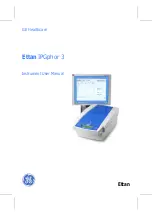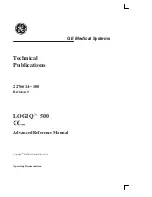
4) Insert the screw (9) and nut (7) and fasten using the flat head screw
(10). Secure the screw connection with Loctite® 241 and tighten to the
specified torque value (see table).
5.3 Adaptation
The system ankle joint is adapted to the needs of the patient through the
individual combination of the stop pin (4), bearing ball (5), compression
spring (3) and stop pin (small) (2) with the set screws (1).
The following combinations are possible:
Combination
Installation
position
anterior
Installation
position
posterior
Application
Stop pin
e.g. ICP or spina bifida
Spring
Stop pin
e.g. in case of distinct hyperextension in the
knee joint
Spring stop
Stop pin
e.g. with distinct hyperextension in the knee
joint, but with additionally adjustable damped
dorsal stop
Spring
e.g. in case of weakness of the lower leg
muscles
Stop pin
Spring
Dorsiflexion assist, e.g. in case of peroneal
paralysis without own muscular knee joint pro
tection
Spring stop
Spring
e.g. in case of pareses of the lower leg
muscles
Spring
Spring stop
e.g. in case of weakness of the lower leg
muscles with tendency to hyperextension of the
knee joint
Stop pin
Spring stop
Dorsiflexion assist, e.g. in case of pareses of
the lower leg muscles without muscular knee
joint protection
Spring stop
e.g. in case of pareses in the lower leg
muscles with weakness of the knee-protecting
muscles
Torque [Nm]
17LA3=12
17LA3=14
17LA3=16
17LA3=20
Countersunk head screws
(item 12)
3.6
3.6
7.1
7.1
1) Install the bearing ball (5), stop pins (4), compression spring (3) and
stop pins (small) (2) with the set screws (1) in the combination required.
2) Secure the set screws (1) with Loctite® 241.
16 | Ottobock
Summary of Contents for 17LA3
Page 2: ...1 2 Ottobock...
Page 3: ...2 3 4 5 6 7 Ottobock 3...
Page 99: ...17LA3 16 T 17LA3 20 T C Brace 17AO1 3 2 4 4 1 4 2 Ottobock 99...
Page 100: ...300 C 100 Ottobock...
Page 104: ...1 5 4 3 2 1 2 1 Loctite 241 3 14 12 Loctite 241 6 1 2 7 3 11 633F7 1 8 104 Ottobock...
Page 107: ...4 4 1 4 2 Ottobock 107...
Page 111: ...Ottobock 111...
















































